would like closure to my life ,born without a family,raised in 1 foster home I’ve stayed in life hoping that one day i would meet my real family.. As a teen, years ago i ventured into NYC to locate my biological mother .. found her , was very dissappointed ,..got no answers as to why she gave up on 8 of us.. I never met my other siblings .. so you can just imagine how lost I feel in this world.. any info as to where i could begin ..will be appreciated.,Ms Gaston ps my birth name is Turner …
Most Popular Female Names in the U.S. Census
- By Talya
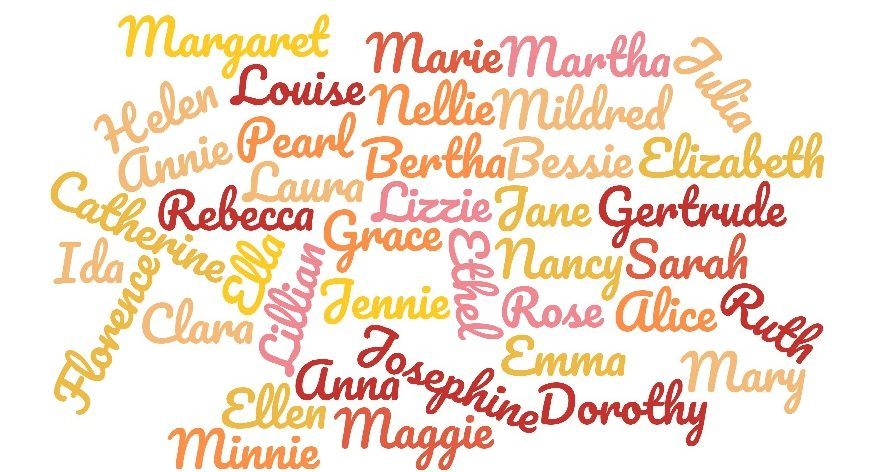

With the U.S. Census 2020 in full swing, we’re diving deep into the 700+ million records in the U.S. Census collection on MyHeritage. We crunched the numbers and uncovered some intriguing trends in the most popular given names of women, starting from 1850 and ending in 1940 (with the exception of the 1890 records, which were unfortunately destroyed in a fire in 1921). These trends give us a peek into the lives of the incredible women and matriarchs who appear in this collection — and the mindsets of the parents who chose their names.
What was your great-grandmother’s given name? Search our U.S. Census records!
Check out the data visualization below for a fascinating perspective on what we found:
Let’s take a closer look at the names that remain perennial favorites over this period, learn more about their origins, and meet some of the famous American women who bore them:
Mary
Was there a Mary in your family tree? It’s likely, because this name was the most common by far through much of American history, including the period covered by the visualization above. Many parents chose to name their daughter Mary as an expression of devout Christian faith. In fact, due to a Catholic Church tradition of naming children only after Christian saints, many girls were officially christened Mary at their baptism — but went by other names within the family. You may have an ancestor who was known to you or your family members by a different name, and be surprised to find her listed as “Mary” in a census record.
Variants to the name Mary have also been popular. In the visualization, the name Minnie, which was sometimes a nickname for Mary, as well as the French variant Marie both make their way into the top 10.
One famous American Mary was Mary Cassatt. Born in 1844 in Allegheny City, Pennsylvania, Mary Cassat was an Impressionist painter who opened a new window into the private worlds of women through her paintings, particularly with her depictions of the intimate bonds between mothers and children.
Most painters at the time were men, so Mary’s contribution to the art world was different and invaluable. Mary was an advocate for women’s equality and campaigned for women’s right to vote in the 1910s.
Elizabeth
Elizabeth, originally derived from the Biblical name Elisheva, was also extremely popular for centuries and certainly during the span of these 100 years as seen in the visualization. There have been two ruling monarchs of England named Elizabeth, both of them iconic. Interestingly, though, the name Elizabeth has been more popular in the U.S. than in the U.K.
Variants of Elizabeth that also appear with popularity in the U.S. census include Eliza, Lizzie, and Betty. It’s interesting to note from the visualization that when Elizabeth trends downwards, shorter nicknames like Eliza and Lizzie trend upwards — perhaps indicating that Americans of the time preferred to use shorter names.
One Elizabeth/Eliza who captured the hearts and minds of Americans around this time period was Elizabeth Schuyler Hamilton, wife of founding father Alexander Hamilton. After her husband’s untimely death, Eliza dedicated her life to public service and charity work, and to preserving her husband’s legacy.
She founded the first private orphanage in New York City and lived to the ripe old age of 97. She is remembered as one of American’s first philanthropists for her work with the Orphan Asylum Society.
Margaret
Margaret is the English version of the French Marguerite, the Latin Margarita, and the Greek Margarites, all of which were derived from the Old Persian word margarita, which means “pearl.”
Maggie, a variant or nickname for Margaret, also appears among the most popular names for women in the U.S. census.
One Margaret who contributed significantly to American culture was Margaret Mead, an American cultural anthropologist who called into question many norms of American society with her studies of South Pacific and Southeast Asian cultures.
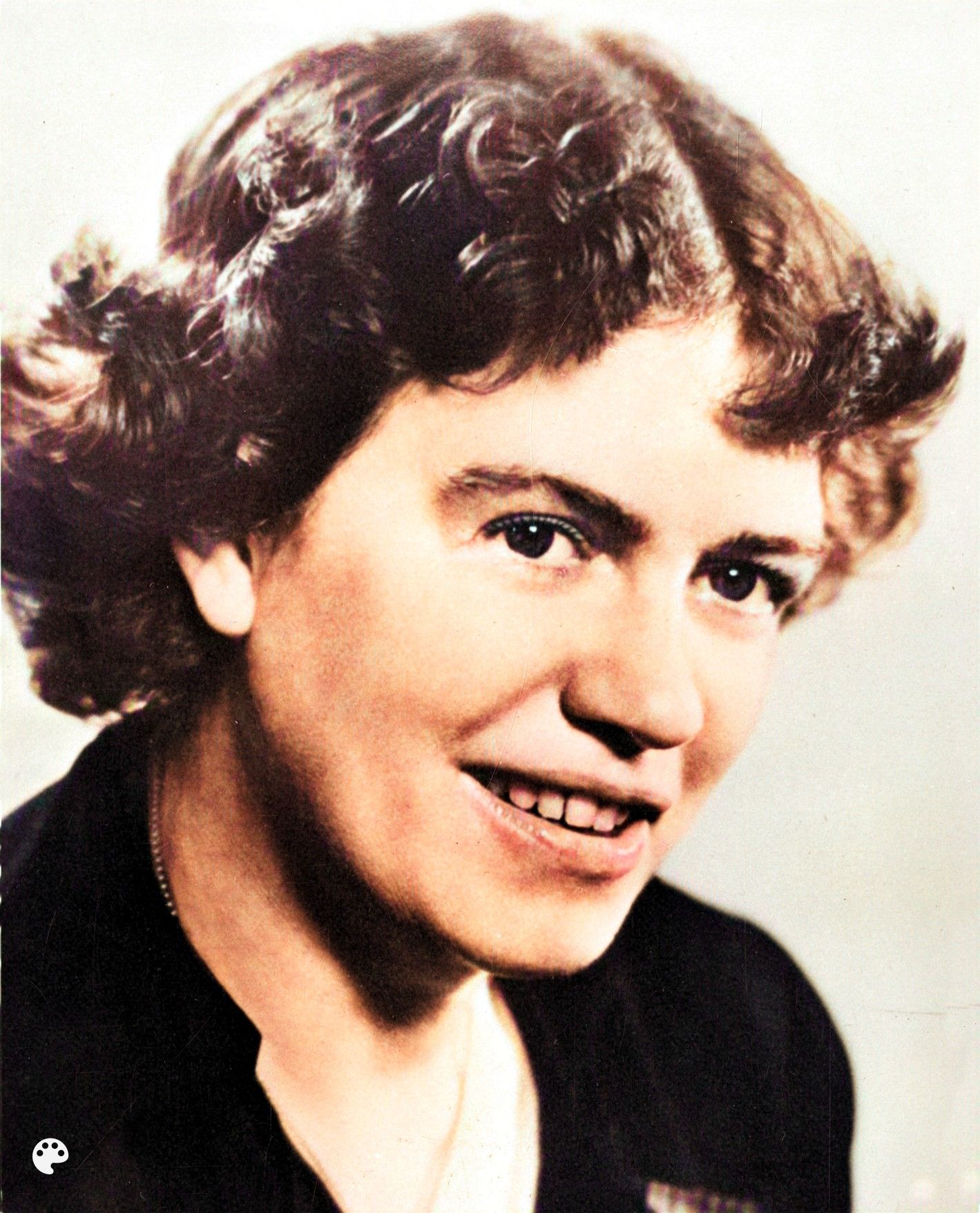
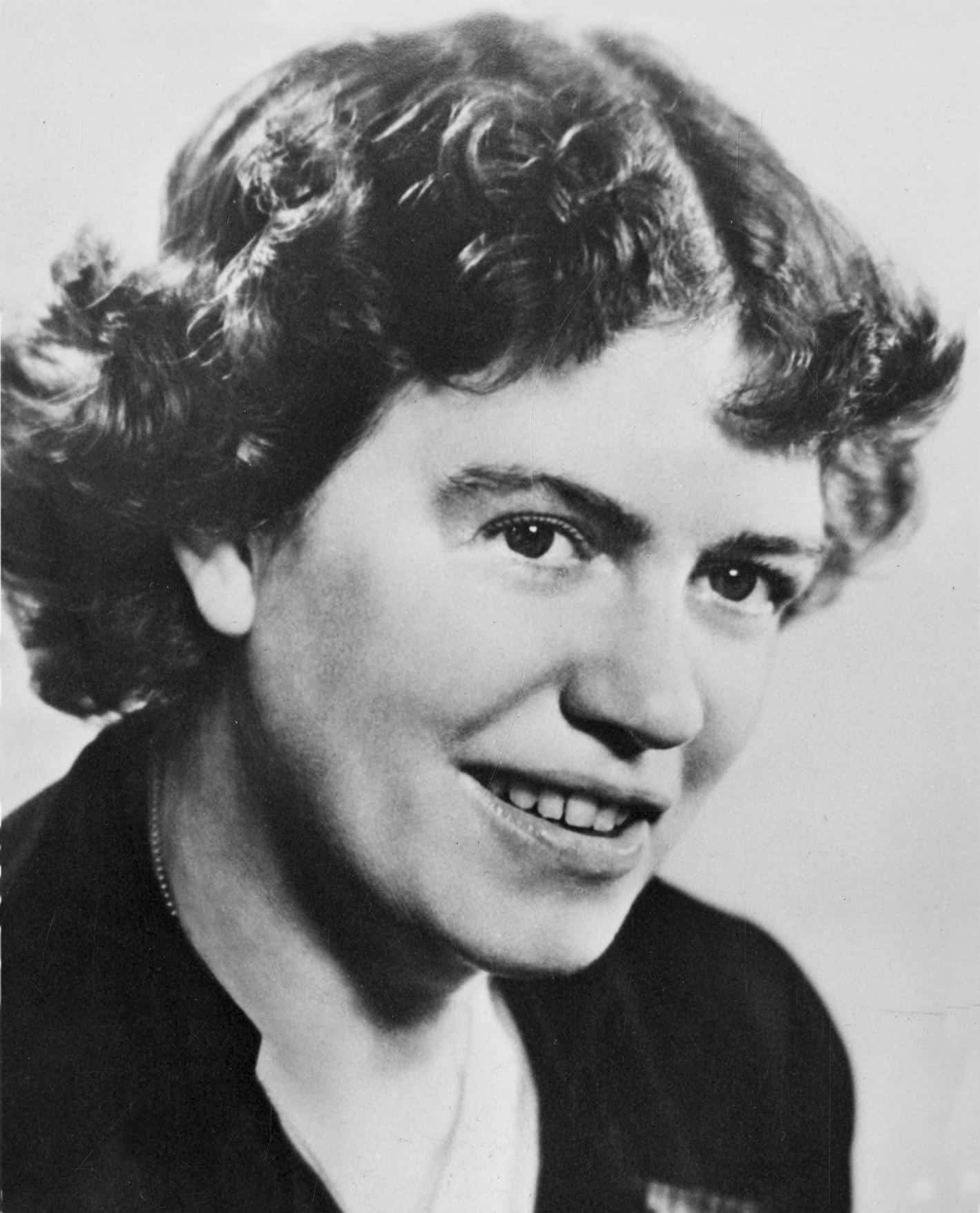
Sarah
Sarah, a biblical name meaning “princess” or “noblewoman,” came into popular use in Europe after the Protestant Reformation. Since the 1880’s in the U.S., Sarah has retained high popularity as a given name. Though the name dips slightly towards the end of this visualization, Sarah has remained a top choice for names throughout the 20th century, and even makes a reappearance in the top 10 list later on in the 20th century, from 1978 through 2002.

Sarah Josepha Hale, painted by James Reid Lambdin, circa 1831, (Credit: Richard’s Free Library, Newport, New Hampshire )
Sarah Josepha Hale was a famous American author and editor known for writing one of the first novels about slavery, entitled, Northwood: Life North and South.
In addition to being one of the first American female novelists, Sarah wrote a book of poetry for children that included the famous nursery rhyme, “Mary Had a Little Lamb.”
Catherine
Catherine is another traditional Christian name that has Greek roots. Its many variations include different spellings (Katherine, Kathryn, etc.) and adaptations into different languages, such as Cathleen, Kaitlyn, and even Karen. Common nicknames for Catherine include Kate and Cathy.
One notable American named Katharine was Katharine Hepburn, a famous American actress who was a leading lady in Hollywood for over 60 years. She is remembered as an important cultural figure for her fierce independence and refusal to conform to society’s ideas of what women should be. For example, she wore slacks before they became commonplace for women in America.
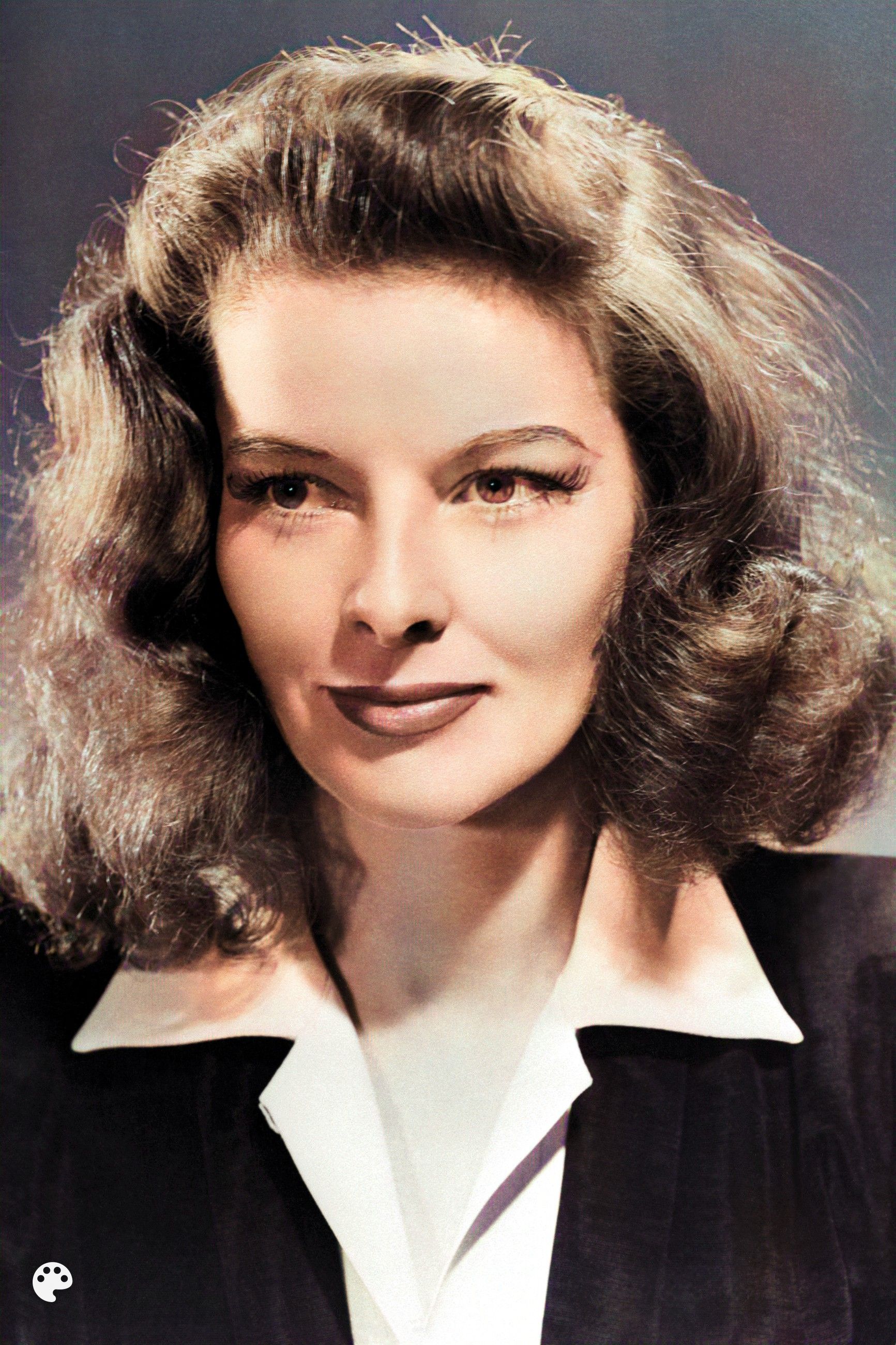
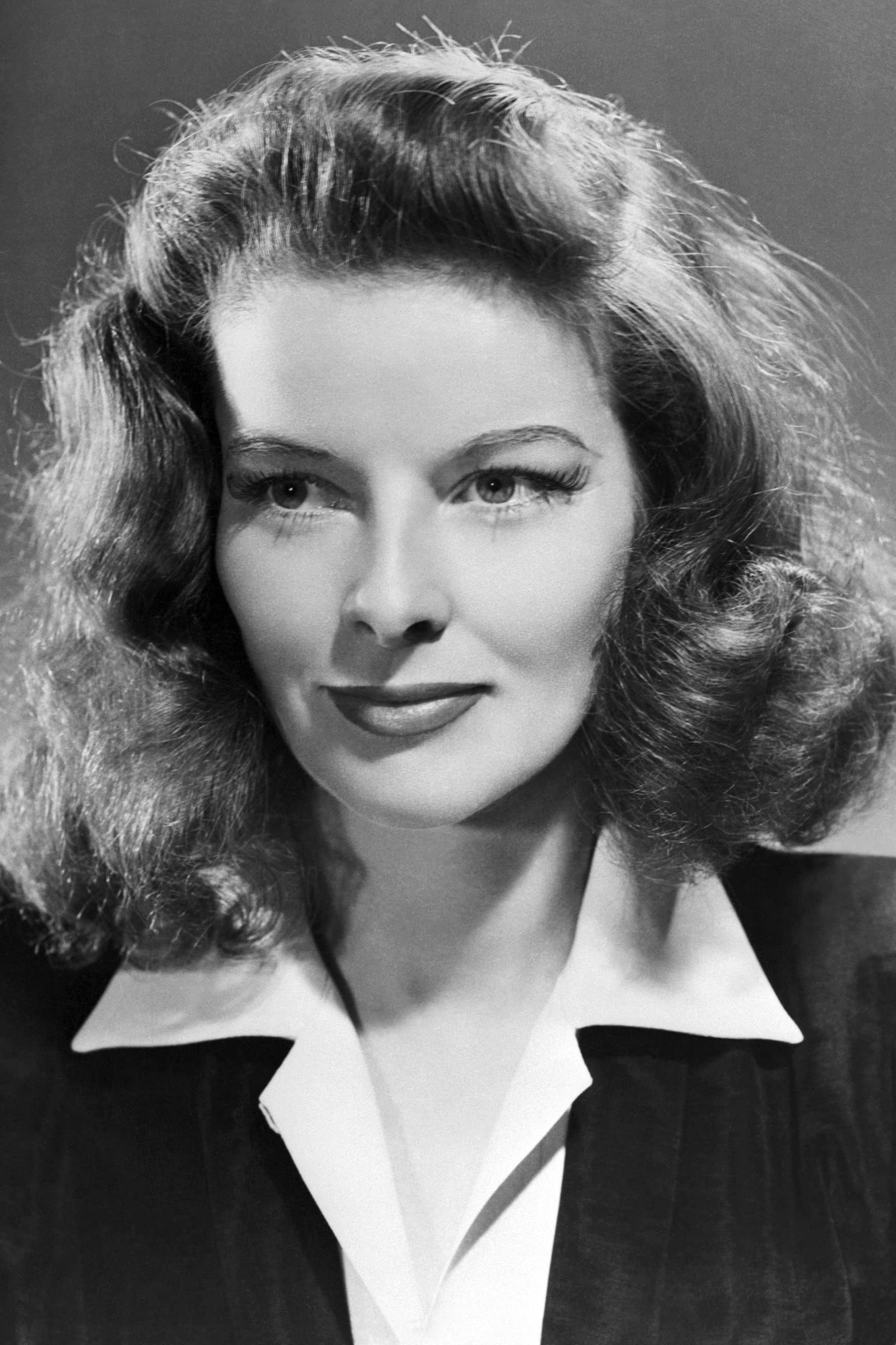
Jane
The name Jane is a cognate of John. The more common variant of the name was Joan until the mid-16th century, when aristocrats began using the name Jane — derived from the French Jehanne.
An American Jane worth noting is Jane Addams, a social worker and political activist who took an active role in the women’s suffrage movement in the United States. She was the first woman to win the Nobel Peace Prize, and she’s largely recognized as the founder of social work as a profession in the U.S.
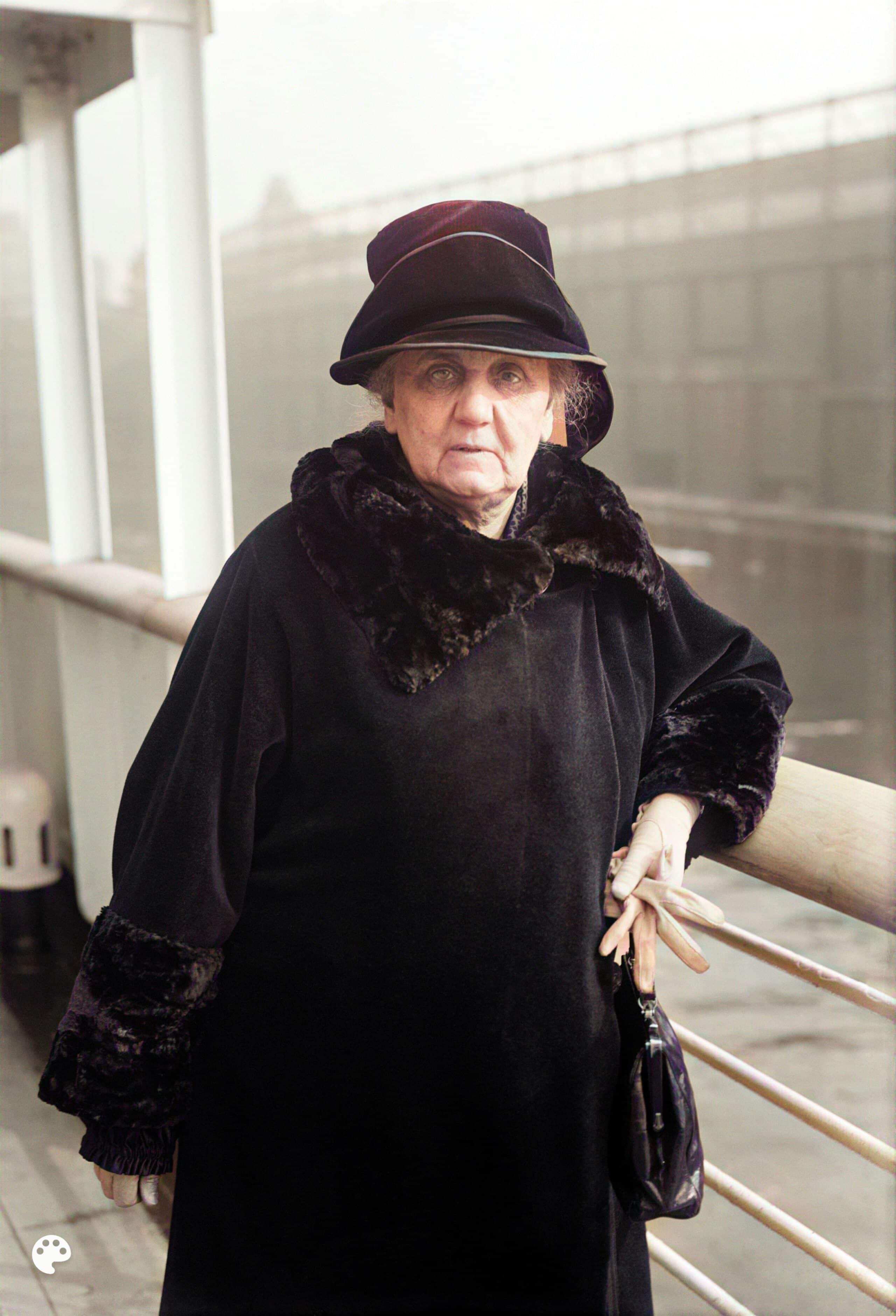
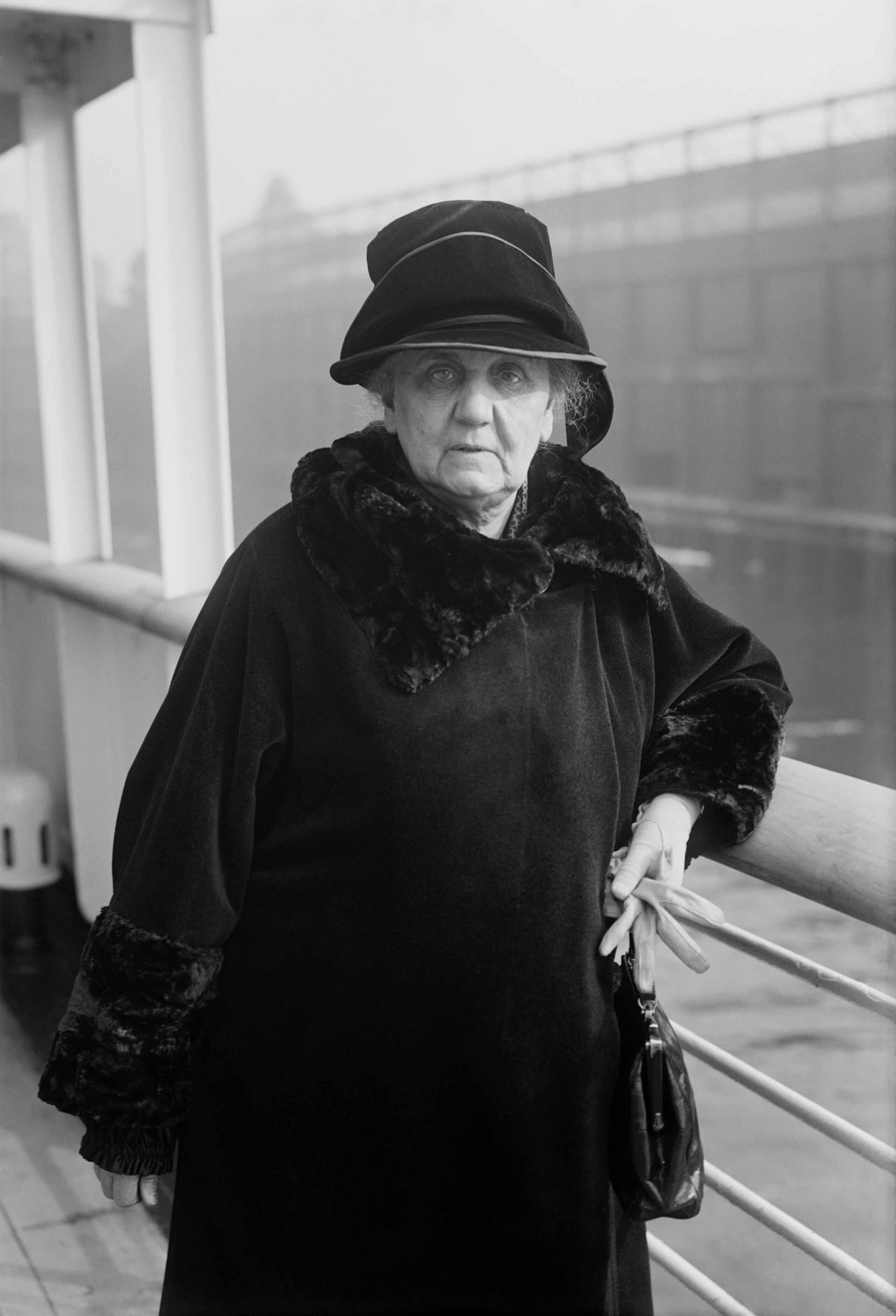
Martha
The name Martha has Biblical origins, but like the name Sarah, it only came into popular use after the Protestant Reformation. There have been many famous Marthas in American history — not least of whom America’s first lady, Martha Washington.
A notable Martha from the period of 1850–1940 was Martha Graham, a modern dancer and choreographer whose technique (the Graham Technique) has become a cornerstone of American dance tradition. Martha was the first-ever dancer to perform at the White House, and to receive the Presidential Medal of Freedom with Distinction: the highest civilian award in the United States.
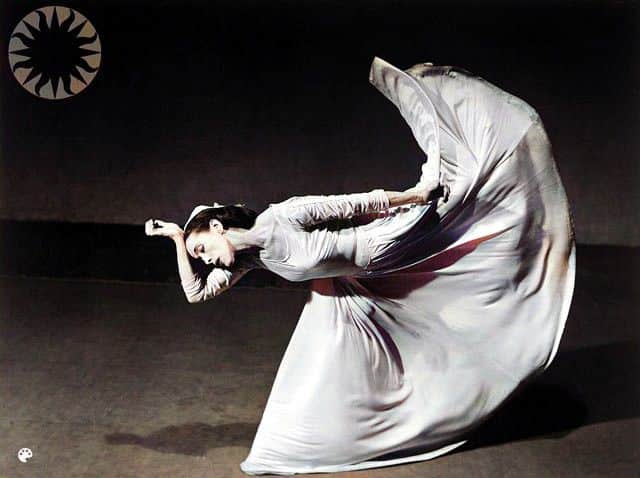
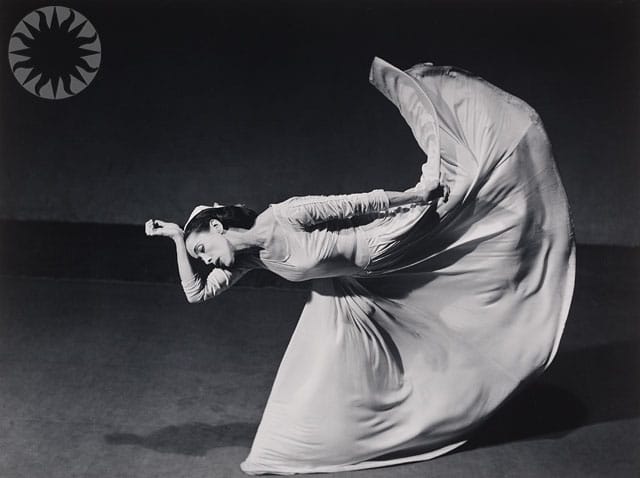
Emma
The name Emma is derived from the Germanic word ermen, which means “whole” or “universal.” It is sometimes used as a diminutive of other names beginning with an “em” sound, such as Emmeline or Amelia. As we can see from the visualization, it rose in popularity in the U.S. during the last half of the 19th century.
The words of one Emma have been welcoming brand-new citizens to America since 1903. Emma Lazarus was an American author and poet of Sephardic Jewish heritage. The last stanza of her sonnet, “The Colossus,” expressed so much of what America strived to be that it was installed on the pedestal of the Statue of Liberty. Emma was also a political activist who helped immigrants learn a vocation and become self-supporting.
Anna
Anna and its variations, such as Ann and Annie, star in the top 10 names in the U.S. census.
Aside from Ann, Anne, Annie, and Hannah, Nancy (which appears in the top 10 in 1860) is also a variation on Anna. One of the most famous Annas in American history is a woman who didn’t actually go by the name Anna at all: Eleanor Roosevelt was born Anna Eleanor Roosevelt, but went by her middle name for most of her life. Eleanor was the First Lady of the United States from 1933 to 1945 throughout her husband’s 4 terms in office. She reinvented the role of the first lady, making public appearances and becoming a prominent political figure in her own right.
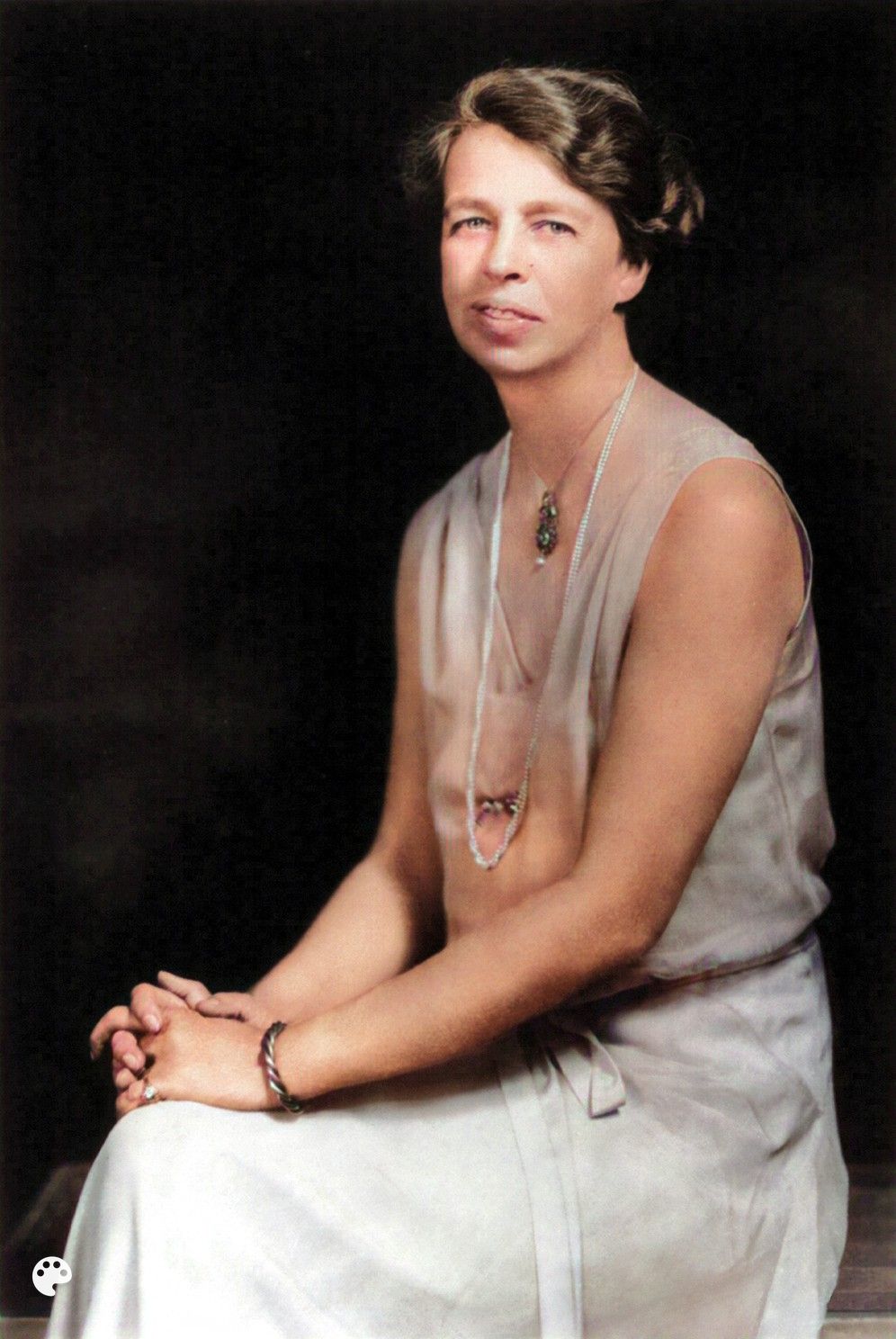
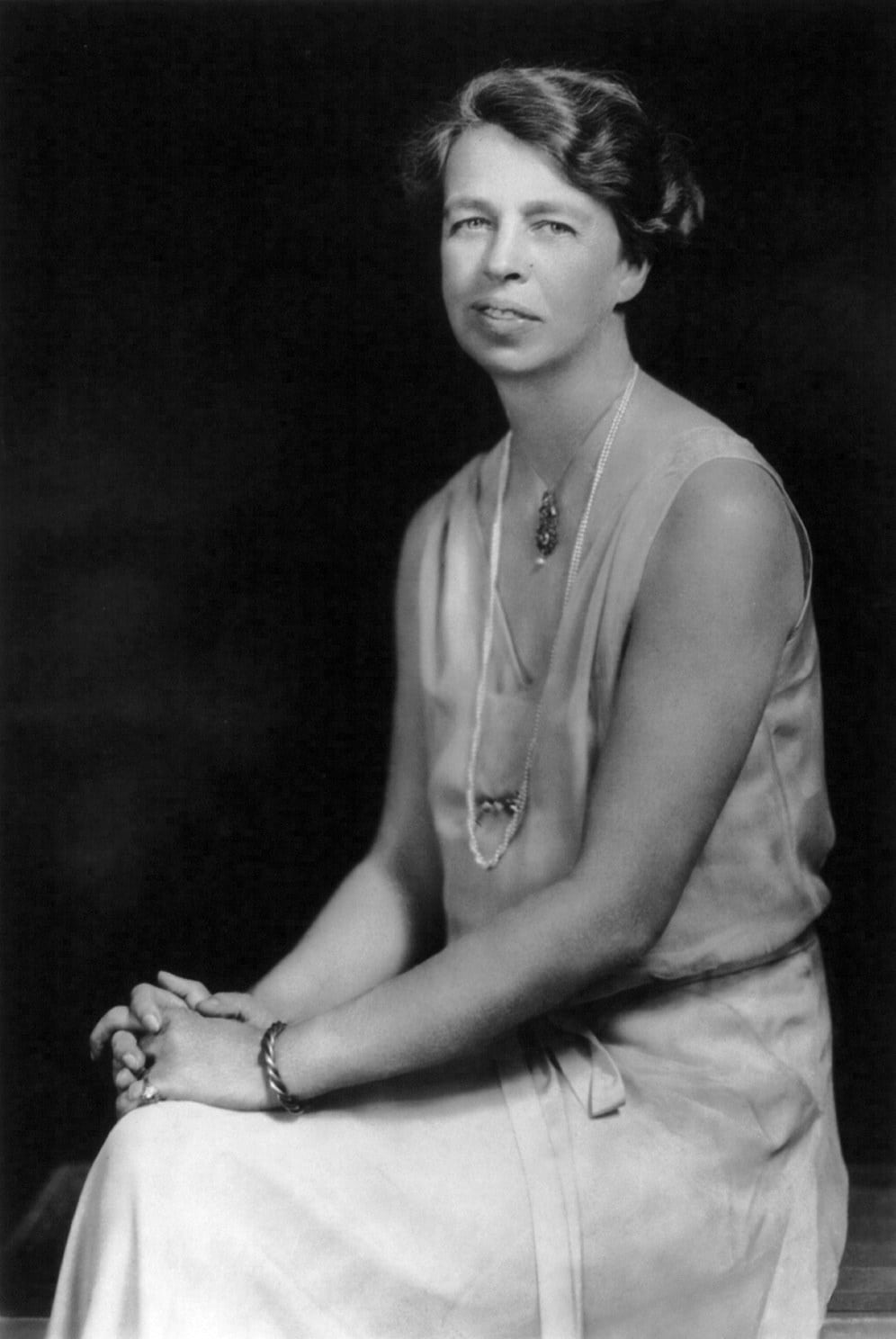
Though the name Eleanor didn’t make it to the top 10 list, our census data shows that it certainly gained popularity throughout the ’30s and ’40s.
Alice
Alice appears on the chart in 1910 and peaks in 1920. It has been in use since the 13th century, but became popular toward the end of the 19th century. This is largely attributed to Lewis Carrol’s 1865 novel, Alice’s Adventures in Wonderland, as well as Princess Alice, daughter of Queen Victoria. The name is derived from the Germanic name Adalhaidis, meaning “of the nobility.”

Alice Playing Croquet with Flamingo, Alice in Wonderland, 1865 (Credit: Illustration by Sir John Tenniel)
It’s fascinating to see how naming trends shift over the decades and contemplate why parents chose a particular name. Were they more traditional and seeking a name with religious significance? Were they looking to honor a beloved relative? Or hoping for something a bit bolder or rosier?
The women from this period in American history formed lasting impressions that will forever shape what these names mean for future generations. Do you have an American ancestor with one of these names? If you don’t know yet, maybe you can find out in the U.S. census collection — search them now to discover your ancestors!
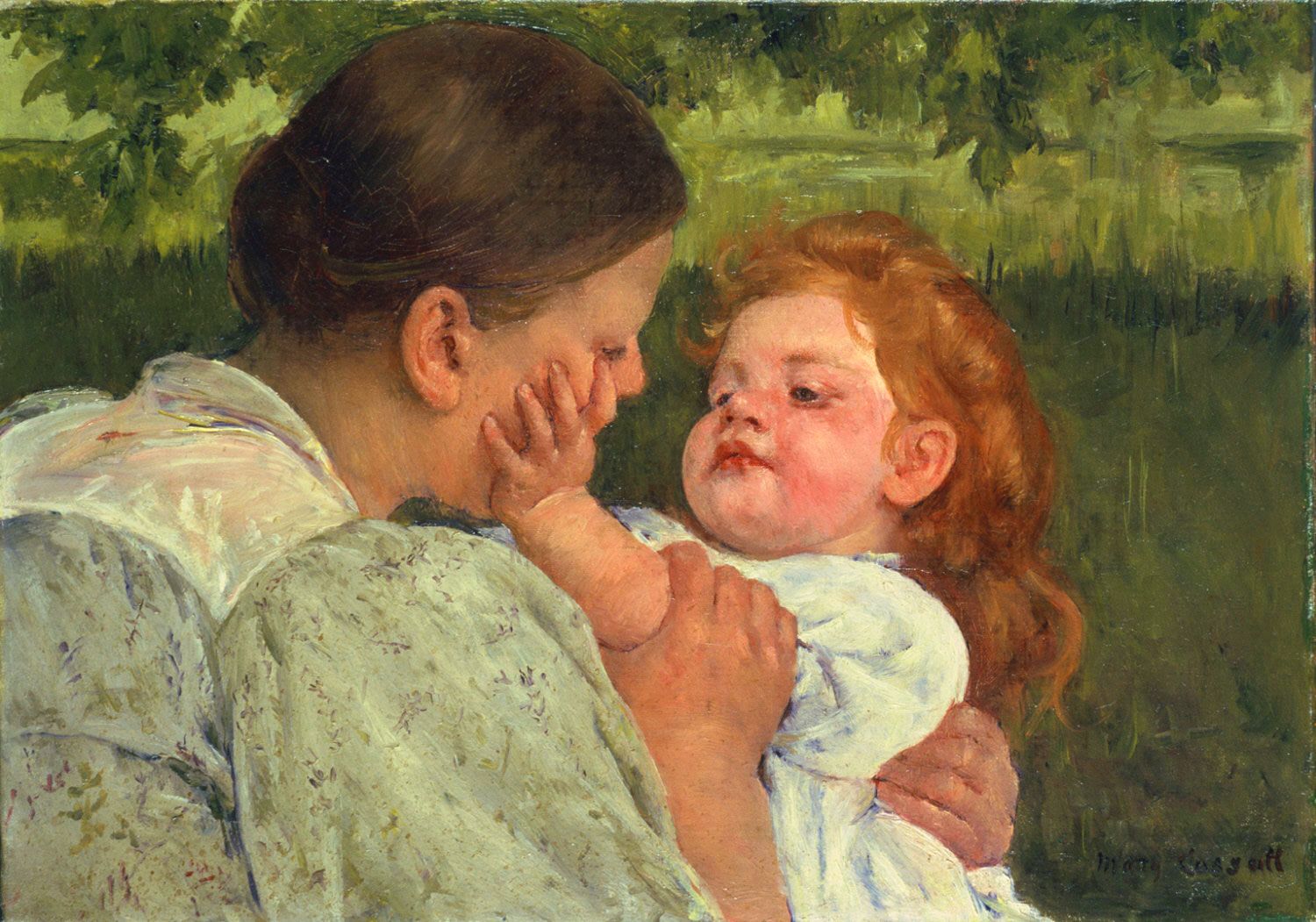
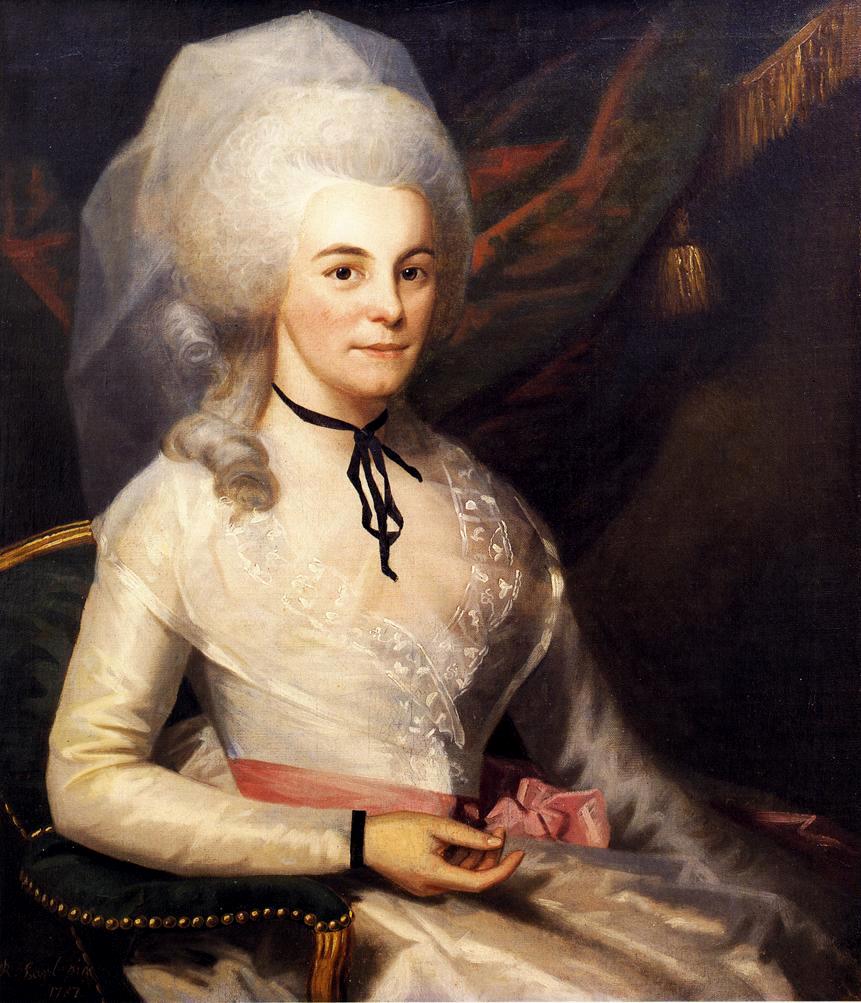
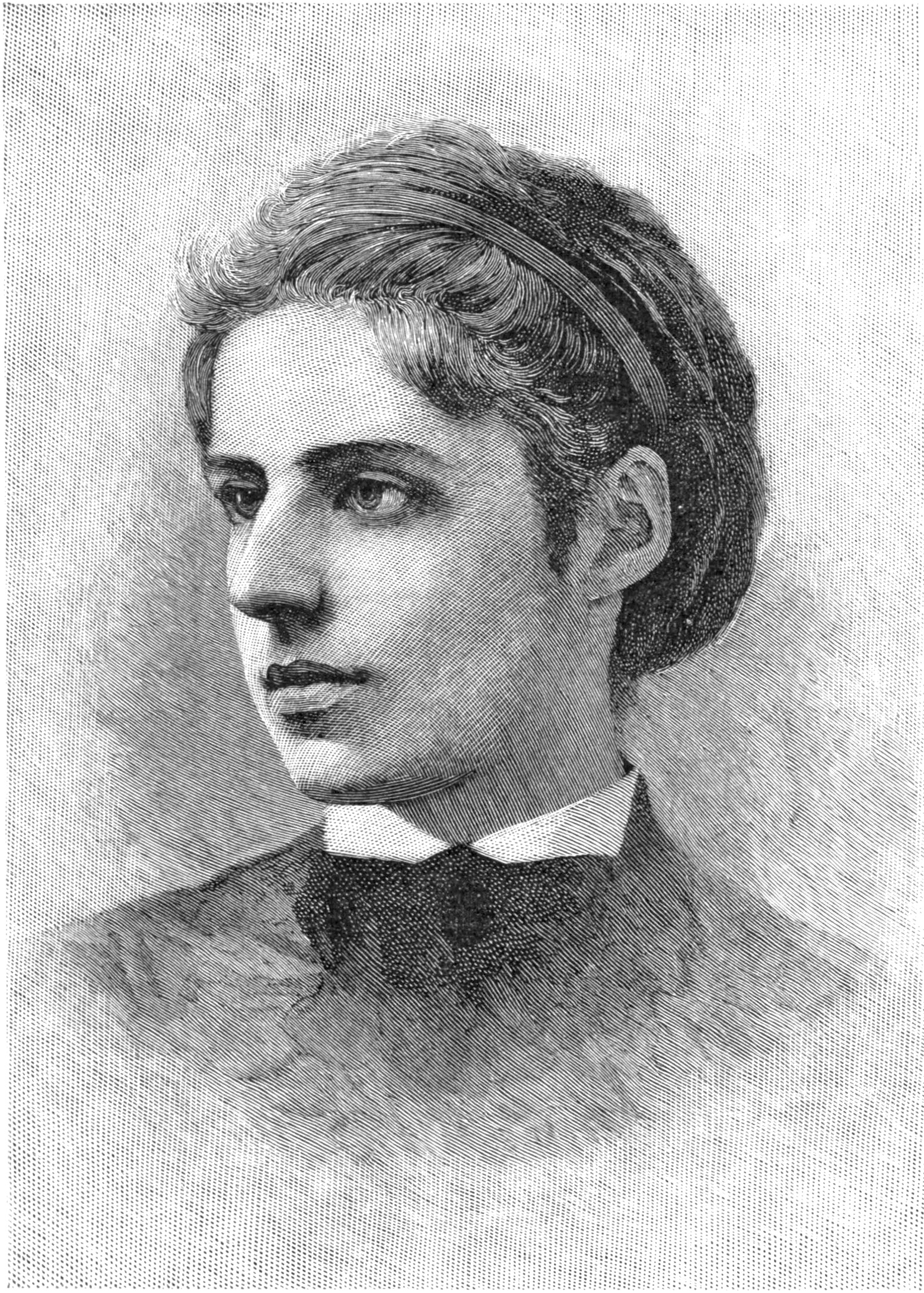

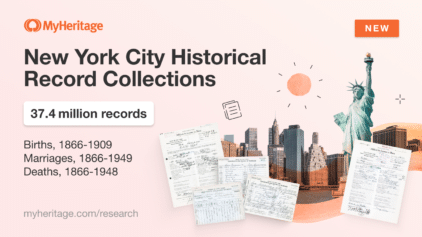

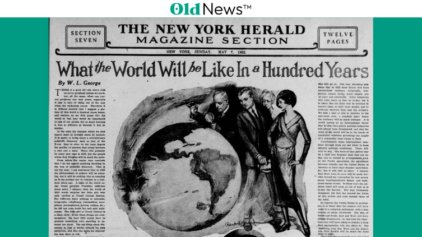

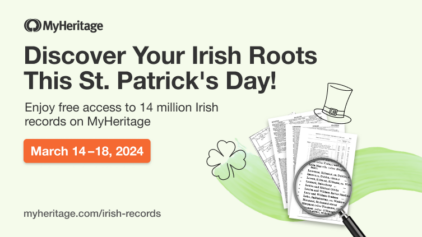




Nancy Fischer
April 13, 2020
Awesome info